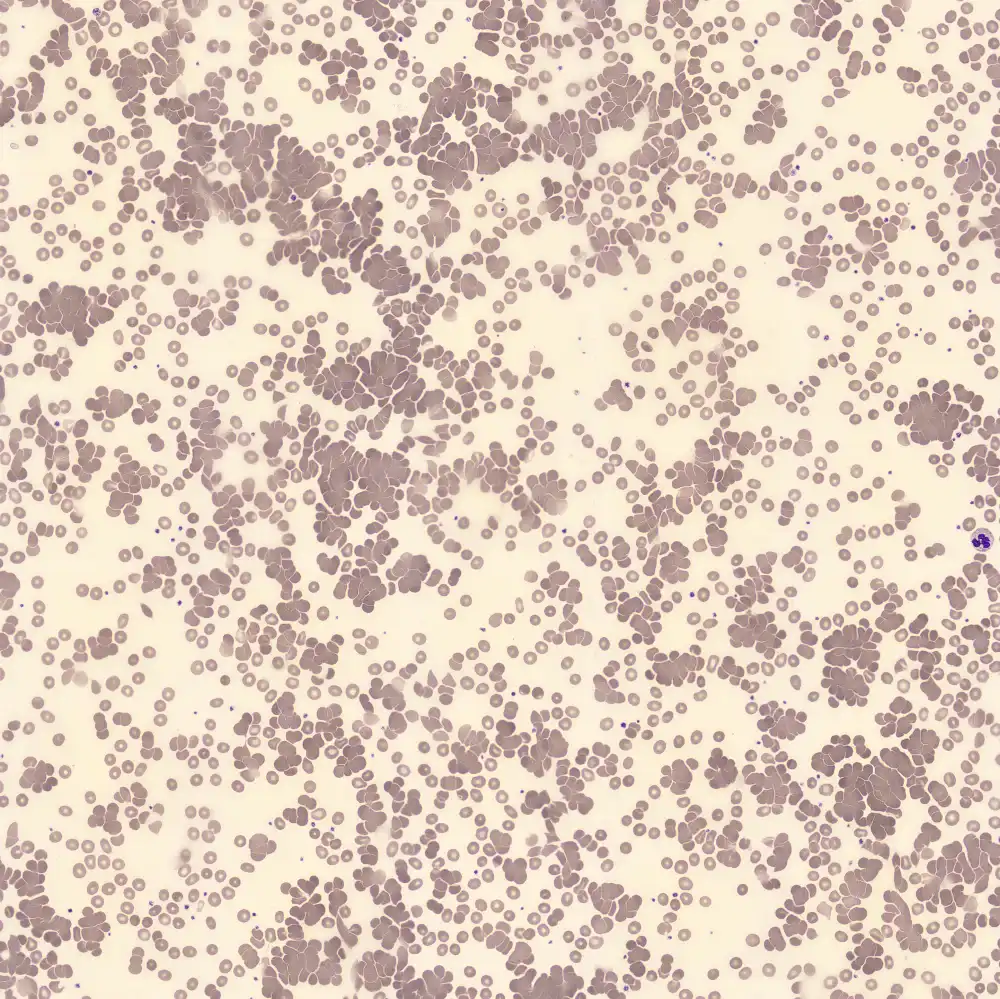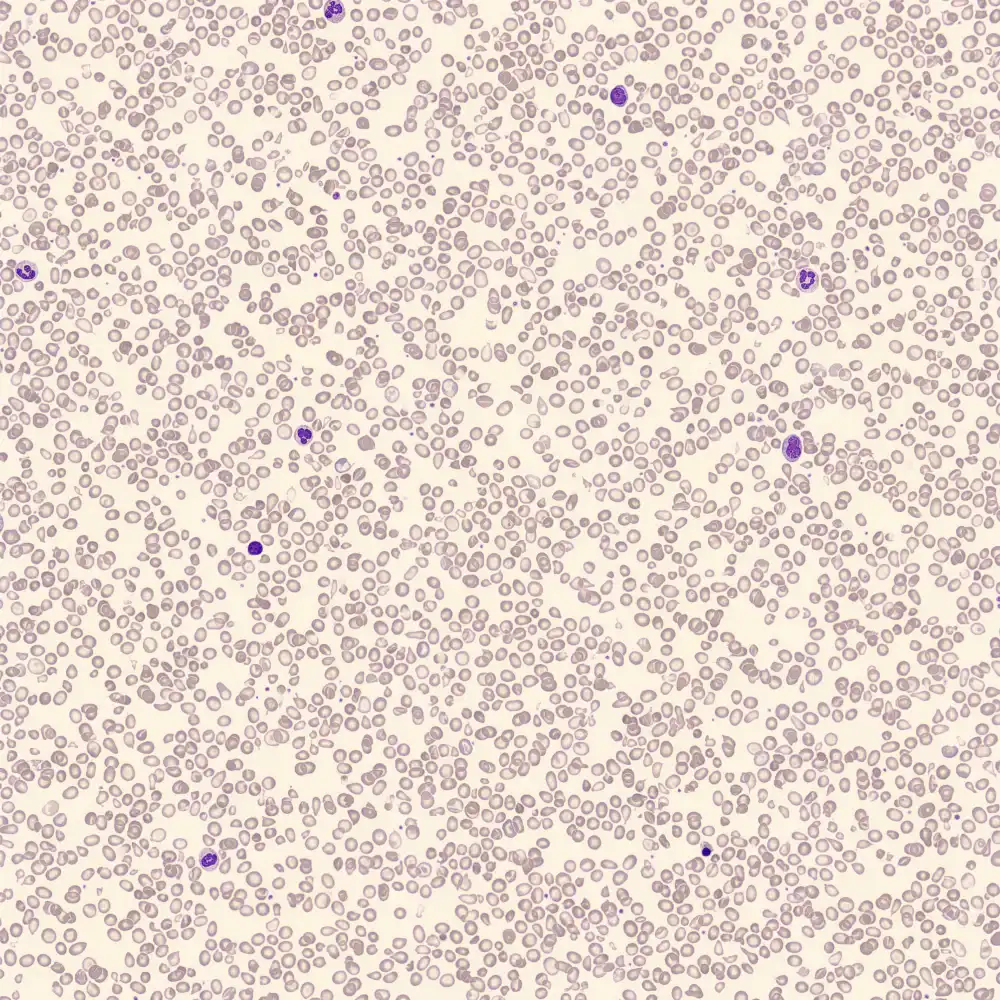Dengue - Slide 1
Dengue, also known as dengue fever, is an infectious disease caused by a virus transmitted by mosquitoes in (sub)tropical areas. The incubation period is 3-14 days, and although most infections are mild, symptoms such as high fever, headache, and muscle aches may occur. However, a small percentage of infections can lead to serious complications, such as dengue hemorrhagic fever and dengue shock syndrome, which can be life-threatening without treatment.
This specimen from a 46-year-old man shows a violent reaction of the lymphocytes. The atypical, plasmacytoid reactive lymphocytes have a deep dark blue cytoplasm, coarse nuclear chromatin and, in part, an aberrant nuclear shape. Differentiating between plasmacytoid and plasma cell is difficult.
Neutrophils
Lymphocytes
Plasma Cells
Monocytes
Eosinophils
Basophils
Smudged
XN Scatterplots
Plasma cells







Plasmacytoid lymphocytes























Lymphocytes


















Monocytes






































































































































































